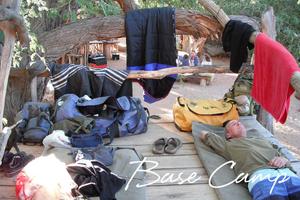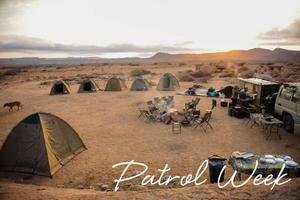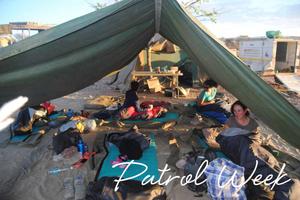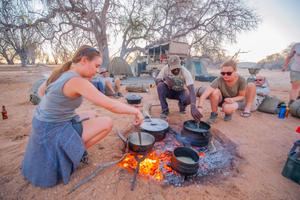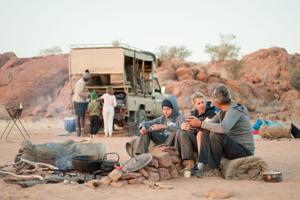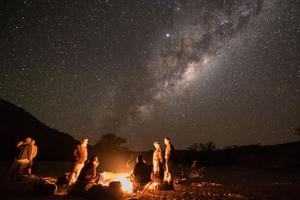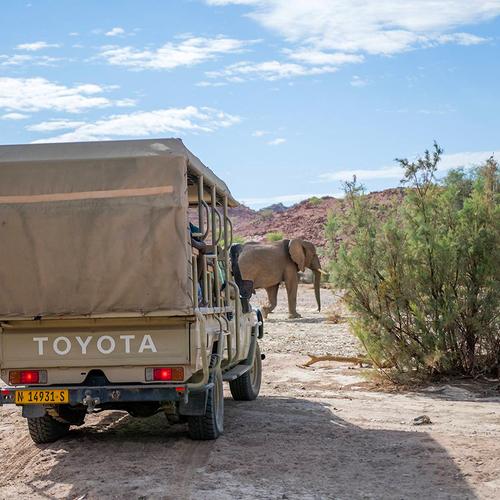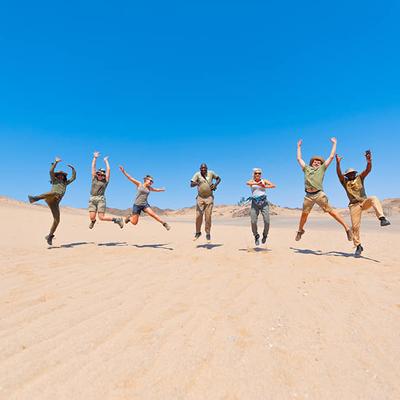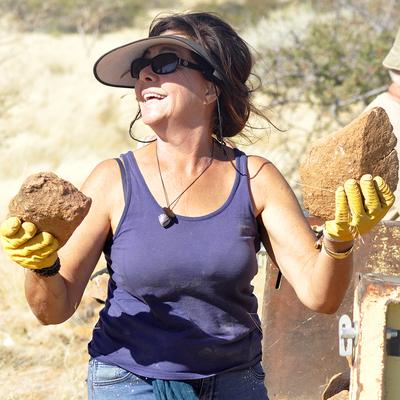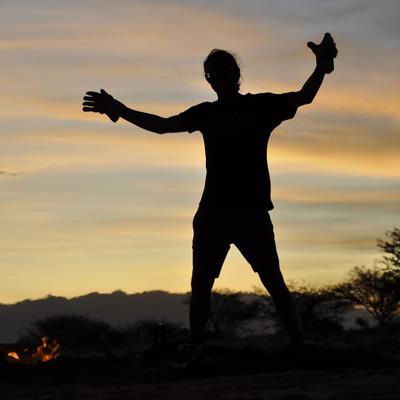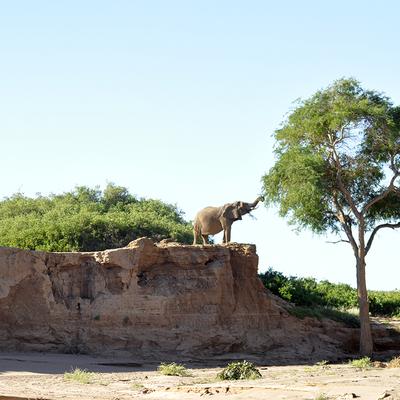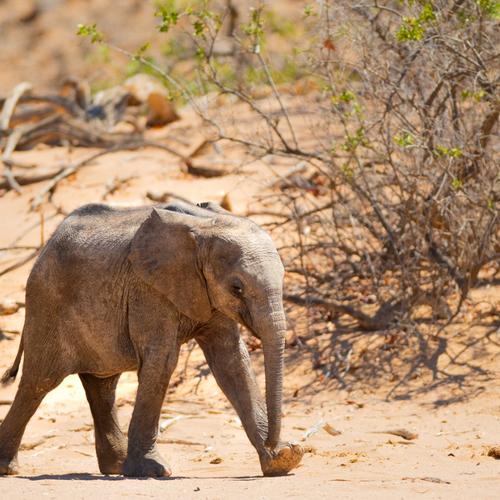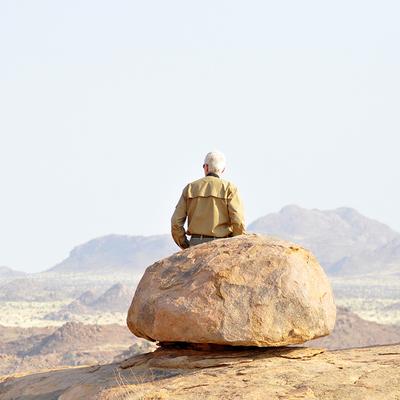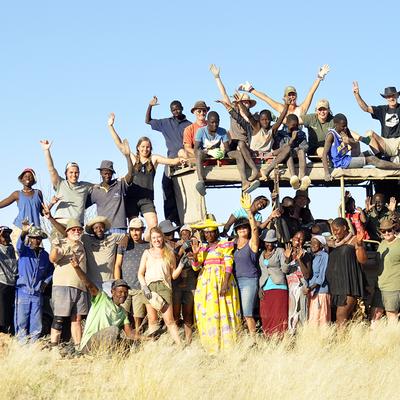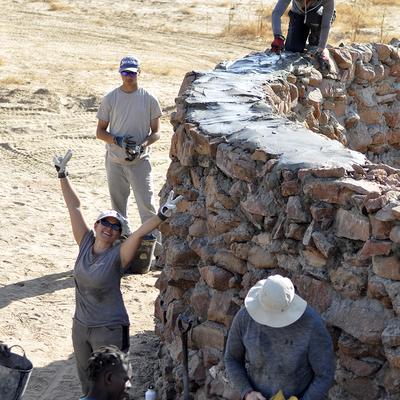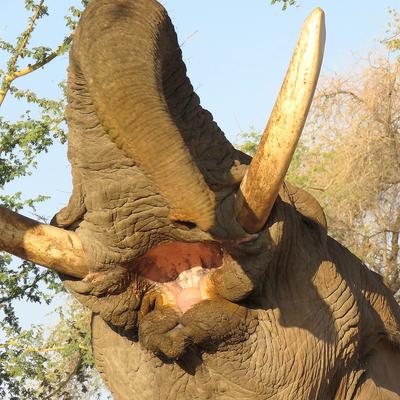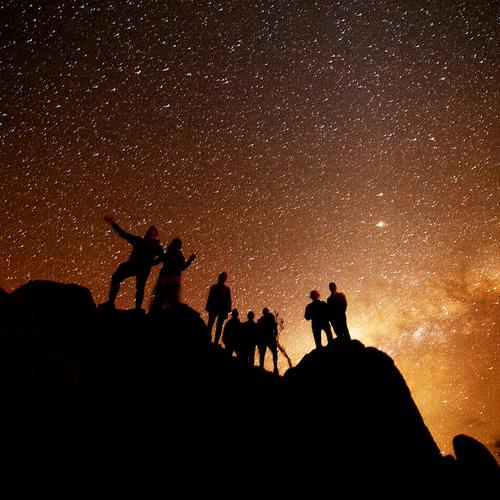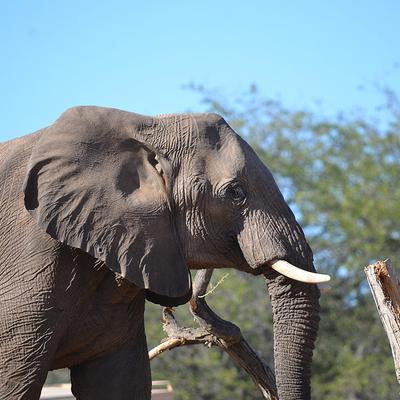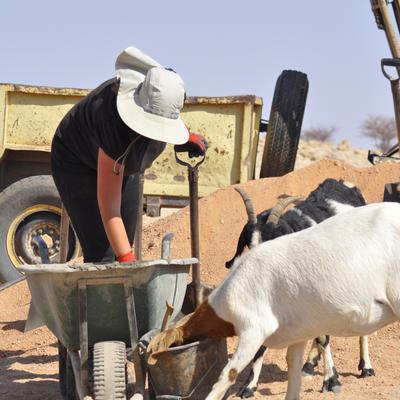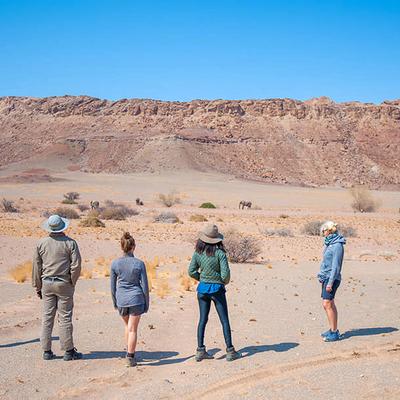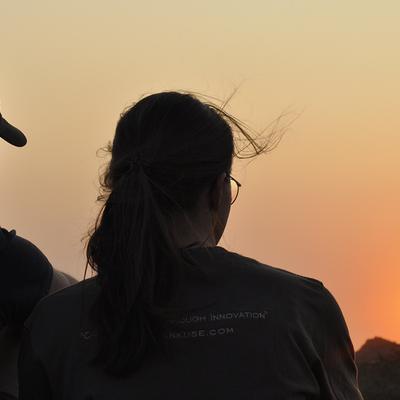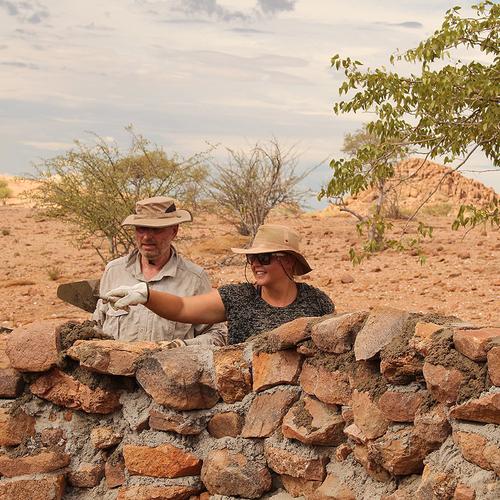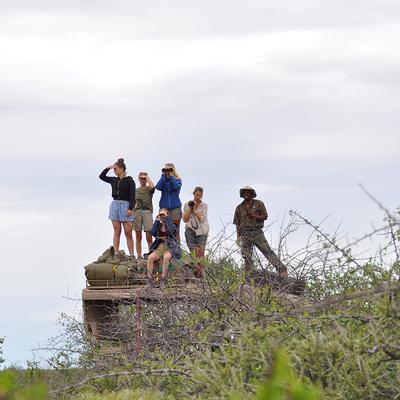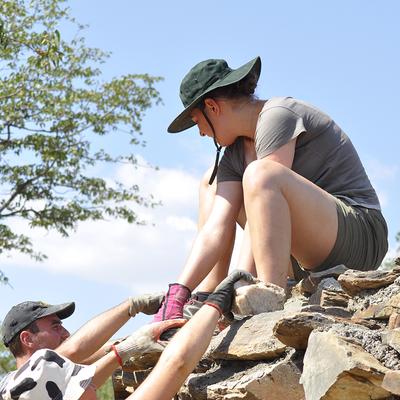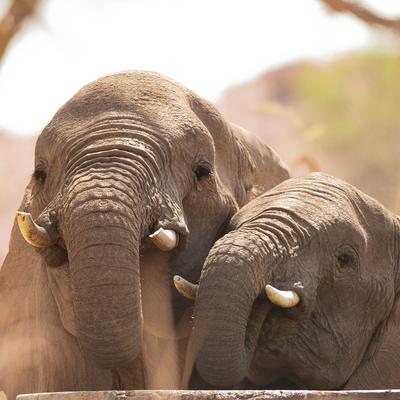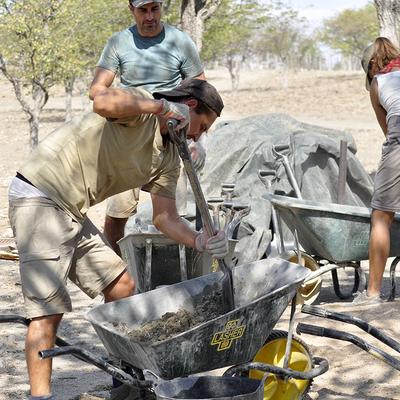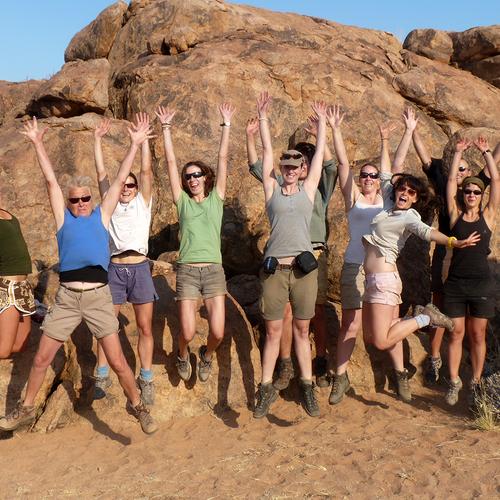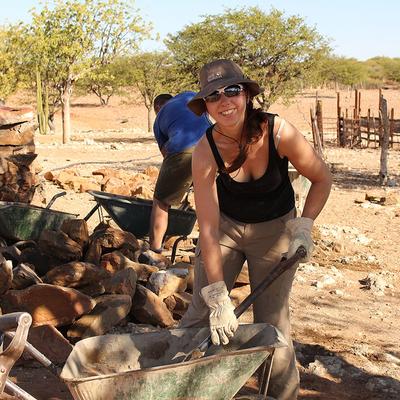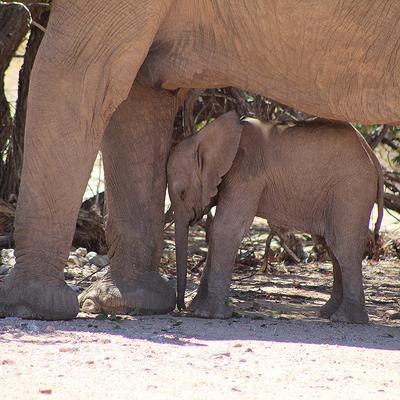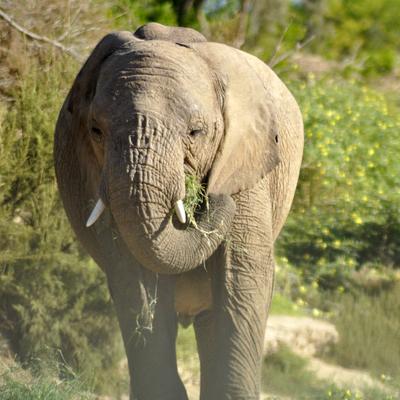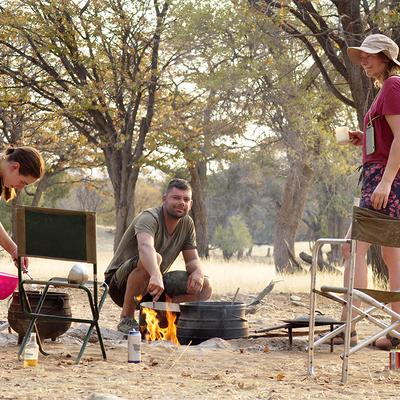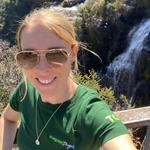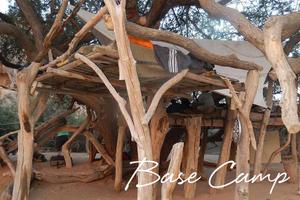

Desert Elephants in Namibia
Go in search of the stunning desert elephants of the Namib Desert and help reduce human-animal conflict on this incredible volunteer project.
One of only two desert-adapted elephant populations in the world have made the harsh yet stunning drylands of the Namib Desert their home. Sadly, however, they are faced with conflict, not just associated with the scarce vegetation and intense heat from their chosen environment, but from human settlements that have encroached on the land.
Although desert elephants used to roam throughout most of western Namibia, their numbers were severely reduced to just 300 during the 1980s due to rampant poaching. After moving north of the Kunene Region for safety, they started to return to the southern areas in the mid to late 1990s, but upon arrival, they were greeted by a large number of humans and livestock that had settled by the Ugab River. Having no previous experience living alongside wild elephants, conflict arose as they competed for land and water resources, leaving the elephants and villagers in danger. Realising the need for intervention, the project was founded to reduce the challenges faced by both humans and elephants and to find practical solutions that would allow both populations to coexist peacefully.
As a volunteer, you’ll play a vital role in protecting this unique population of desert elephants, by tracking and monitoring the herds on patrol week and providing the Namibian government with movement and impact data that no other organisation is currently collecting. You’ll also assist with the construction of protective walls around water sources in local villages and the building of new water points for the elephants and other visiting wildlife - all of which directly contributes to the safety of both the desert elephants and the local communities they live alongside.
Speak To A Travel Expert
Activities
With two main focuses of protecting the wild desert elephant population and supporting the local communities in the region, this project has been designed to work in two-week blocks. One week will focus on elephant patrols and tracking where you will gather crucial data for the project and Namibian government to utilise, and the other week will focus on construction tasks and working with the community.
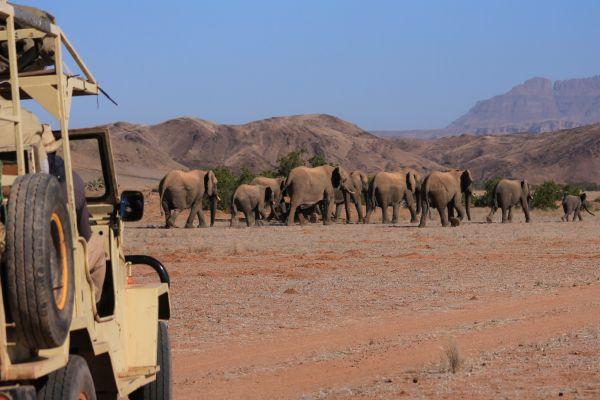
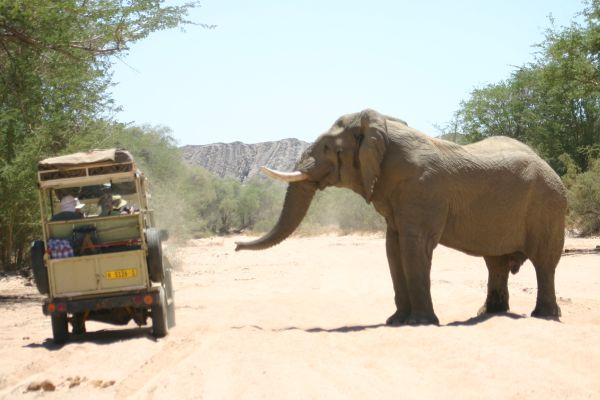
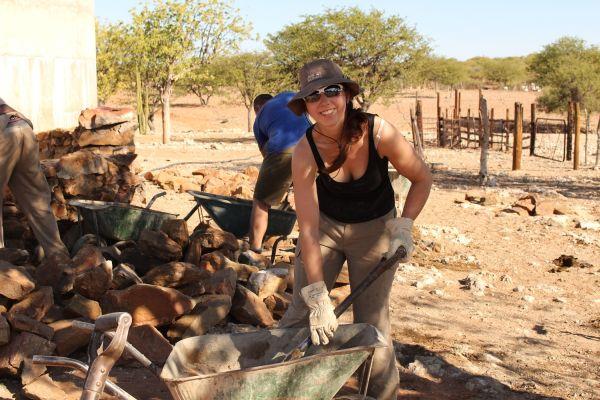
Itinerary
The following itinerary is subject to change depending on the needs of the project and what follows is simply a rough guideline. A minimum duration of 2 weeks is required, though durations of up to 12 weeks are available. If joining for longer than 2 weeks, your itinerary will repeat.
Start Dates & Prices
To secure a place on this project a deposit of $245 is required at the time of booking, with the remaining balance due any time up to 60 days prior to your start date.
Select a duration below to see the available start dates. All dates shown are currently available for you to join this project!
Accommodation
Accommodation
Your time spent in the desert will see you truly immersed in the Namibian wilderness as you camp beneath the stars! Whilst at base camp, you’ll be staying in a treetop platform, and there are toilets and hot showers available. There are also two elephant drinking dams on this campsite, and the elephants often wander past so make sure you keep your eyes peeled for this! During build week, you will set up a more permanent camp where you’ll return each day after your construction tasks, and if there is enough water available, a basic shower may be set up for use. On patrol week, however, you will set up a new camp each night depending on where the elephants decide to lead you, making for a truly wild camping experience!
Your first and final night’s accommodation in Swakopmund is not included and you can book a hotel of your choosing, however, we recommend staying at the A La Mer Hotel, as this is where the briefing is held on the Sunday you arrive, and we can book a room here for you.
Meals & Beverages
Whilst on the project, three meals will be provided each day which will all be cooked over the open campfire. You will be split into small groups, and each day a different group will use the recipes provided to cook for the rest of the team. You can expect to enjoy a variety of different meals varying from local cuisine to some western-style meals. Food items are purchased each week when the team travel to the town of Uis, so special dietary requirements such as vegetarian and vegan diets can be catered for. You can also purchase additional snacks and drinks when you visit Uis during your stay.
Project Details
When Is The Best Time To Volunteer?
There are 2 seasons here which offer very different but incredible experiences:
January – May: This is the summer, and during these months you can expect temperatures of around 30°C (86°F) in the day and 17°C (63°F) in the evening. This is also the rainy season which is a wonderful experience in the desert as rivers can flash flood and you can see how the desert changes overnight. The elephants tend to move closer to the farms at this point which can cause a lot more conflict meaning more patrols and meetings with farmers.
June – December: During these months, the elephants go back to the riverbeds until the rains start again in January. This means patrols are mostly in this beautiful area. It must be noted that whilst daytime temperatures are still hot, the night can get rather cold, falling to around 7°C (45°F).
Getting There
You will need to arrive into Swakopmund on your project start date (Sunday) and there are 2 options to do so; you can either arrive into Walvis Bay Airport and take a 20-minute transfer to your accommodation, or you can arrive into Windhoek International Airport and take a 4-hour overland transfer. If you plan to arrive into Windhoek Airport, please ensure your flight lands no later than 11:30am to ensure you have time to take the transfer to Swakopmund. Transfers from either airport are not included but can be arranged for you and be paid for on arrival.
Visa Requirements
Citizens of most countries, including the UK, Germany, USA, Canada, Australia and most of those within the EU, do not need to obtain a visa to enter Namibia and are granted entry for up to 90 days upon arrival. You will, however, need at least 2 blank pages in your passport for the immigration officials to use and your passport must be valid for a period of at least 6 months from your date of entry. If you are unsure of your individual visa requirements, we recommend speaking to your local Namibian embassy at least 2 months prior to travel.
Fitness & Skills
The construction tasks undertaken on this project involve long hours of physically demanding work, often in high temperatures. Therefore, a moderate to high level of fitness is required to take part. There are no specific skills or experience required, just a commitment to the project, a passion for elephants and a willingness to work as part of a team!
Vaccinations
There are no specific vaccination or medical requirements needed to join this project. The vaccinations required will depend on the individual medical history of each volunteer. We recommend that you consult with your doctor/GP regarding your own vaccination needs as this will ensure you are protected and prepared to travel. In conjunction with this, we also recommend that you take a look at the Fit for Travel website for more helpful information on how best to prepare for your experience.
Gallery
What's Included
- Accommodation (except in Swakopmund on the first and final night)
- Three meals per day
- Return transfers between Swakopmund and the project site
- Full orientation and support from the project managers
- A monetary contribution to the project
What's Not Included
- Flights
- Soft and alcoholic drinks
- Airport transfers - N$300 each way (approximately $17)
